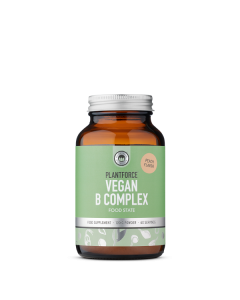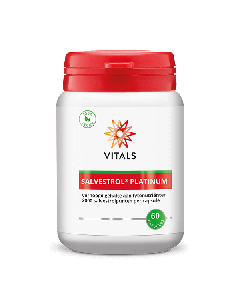- Shipped today!
- Free shipping from € 45
- Postpay possibility
- Review score 9.4
- Earn reward points
- Shipped today!
- Free shipping from € 45
- Postpay possibility
- Review score 9.4
- Earn reward points
- Shipped today!
- Free shipping from € 45
- Postpay possibility
- Review score 9.4
- Earn reward points
- Shipped today!
- Free shipping from € 45
- Postpay possibility
- Review score 9.4
- Earn reward points
- Home
- Vitamins & Supplements
- Vitamins
- Vitamin B
- Vitamin B5


Vitamin B5 (Panthothenic Acid)
What is Vitamin B5 (Pantothenic Acid)?
Pantothenic acid is an essential vitamin also known as vitamin B5. Its major role in the body is to be a precursor that is required to form a cofactor (a substance whose presence is essential for the activity of an enzyme) for many enzymes in the human body. It also contributes to fatty acid and amino acid metabolism (Source: NCBI).
Where are the Vitamin B5/Pantothenic Acid found?
It is found in most food groups in varying amounts. A greater concentration is found in animal-based sources compared to plants, although the latter can also provide a decent source. The best sources are, fortified breakfast cereals, whole grains, sunflower seeds, mushroom, some vegetables, chicken, beef and organ meats (Source: NCBI).
Who is Vitamin B5/Pantothenic Acid good for?
You may be more likely to benefit from taking a supplement if you avoid animal-based foods, have any gastrointestinal issues which impair nutrient absorption. In addition, alcoholics, those with poor diet diversity, and anyone who is undernourished will most likely need to supplement it.
When should you take Vitamin B5/Pantothenic Acid supplements?
Taking the supplement around a meal is best, but not essential. Because pantothenic acid is water-soluble (not stored in the body, excreted in urine), it can be consumed with a glass of water. However, if possible, consuming the supplement with a meal is the preferred method.
What are the signs of vitamin B5/Pantothenic Acid deficiency?
There are many, you may experience a range of symptoms due to its diverse role. A deficiency is associated with numbness and burning of the hands and feet, headache, fatigue, irritability, restlessness, disturbed sleep, and gastrointestinal disturbances with anorexia (Source: NCBI).
How much vitamin B5/Pantothenic Acid do I need per day?
The tolerable upper limit for vitamin B5 has not been defined in Europe, it is believed to have low toxicity and not to cause any serious adverse effects. The adequate intake is 5 mg/day for both male and female adults. The only exceptions are lactating (7 mg/day) and pregnant (6 mg/day) females, who need more. For those interested in population and nutrient intake click HERE. (Source: NCBI and NCBI)
Key Aspects of Vitamin B5
There are many, you may experience a range of symptoms due to its diverse role. A deficiency is associated with numbness and burning of the hands and feet, headache, fatigue, irritability, restlessness, disturbed sleep, and gastrointestinal disturbances with anorexia (Source: NCBI).
Fatty Acids
Pantothenic acid appears to be safe even in high dosages. It forms a substance called pantethine which is being investigated for improving cholesterol levels and lowering triglycerides (fats in the blood). Pantethine is the form most vitamin B5 supplements provide. An essential nutrient for normal fatty acid metabolism.



